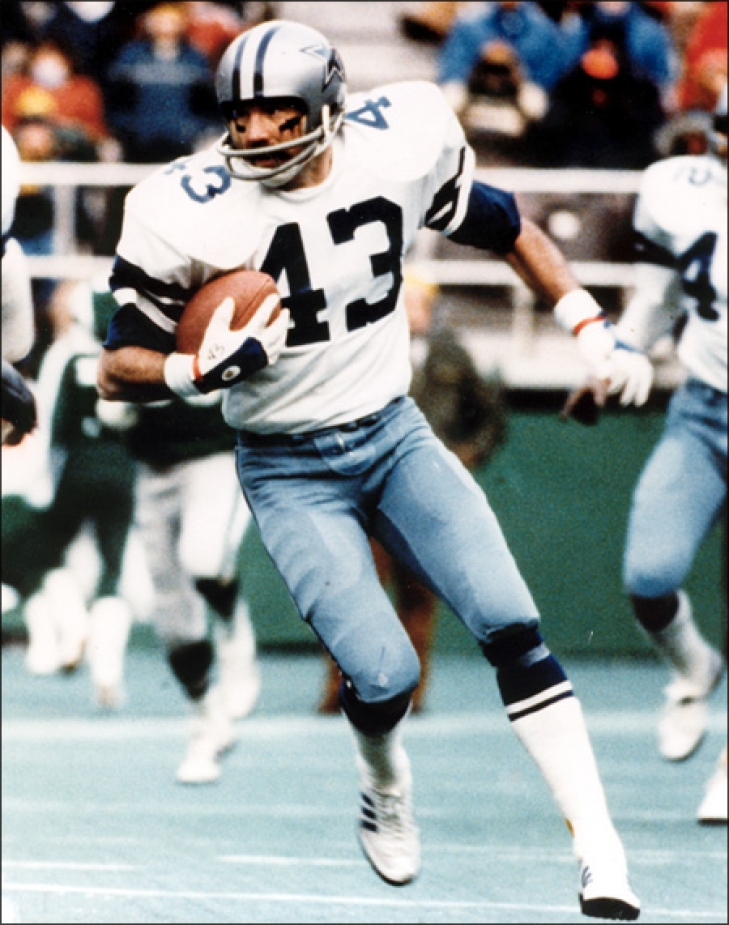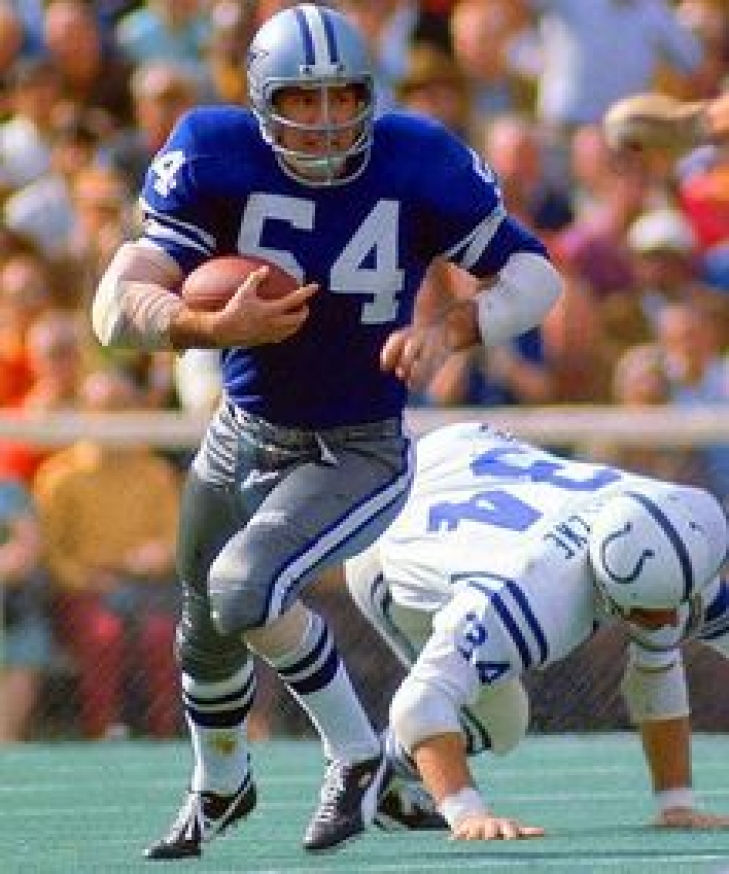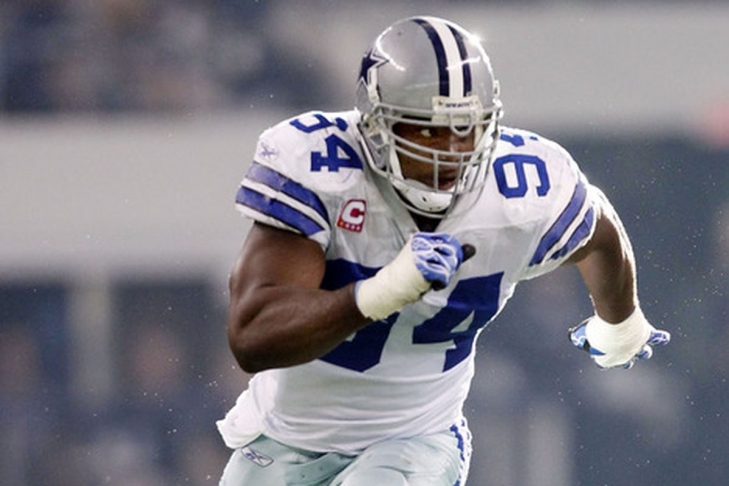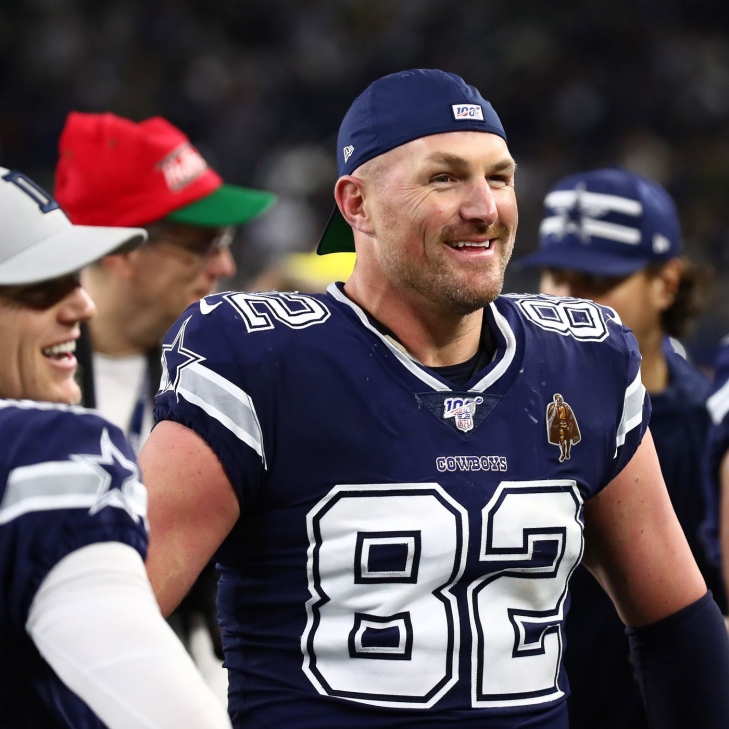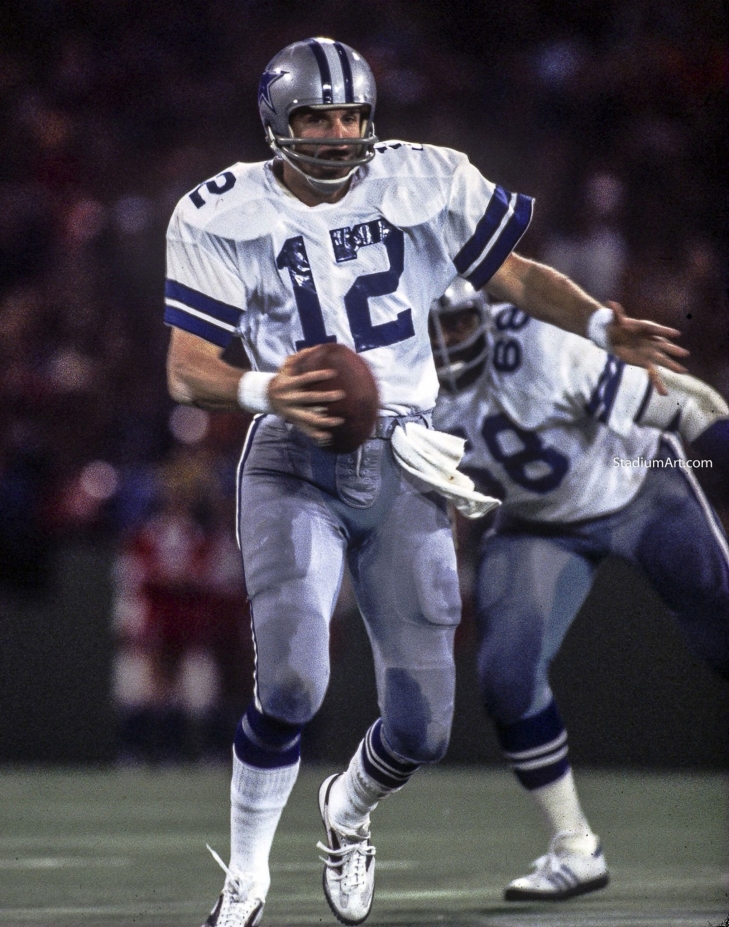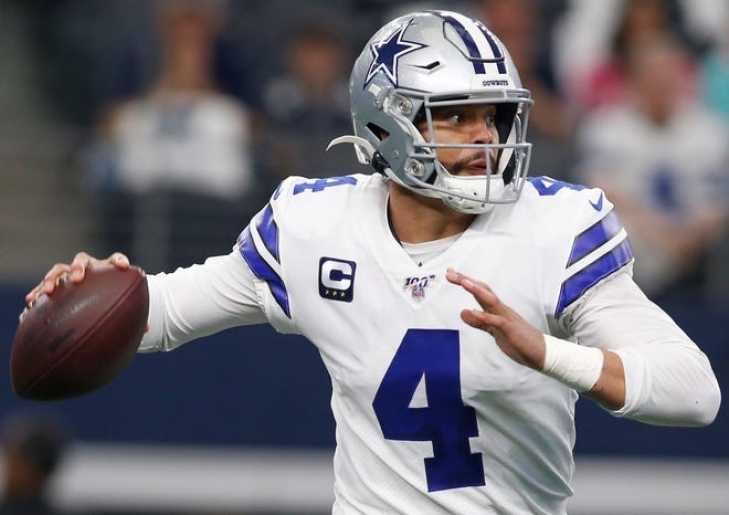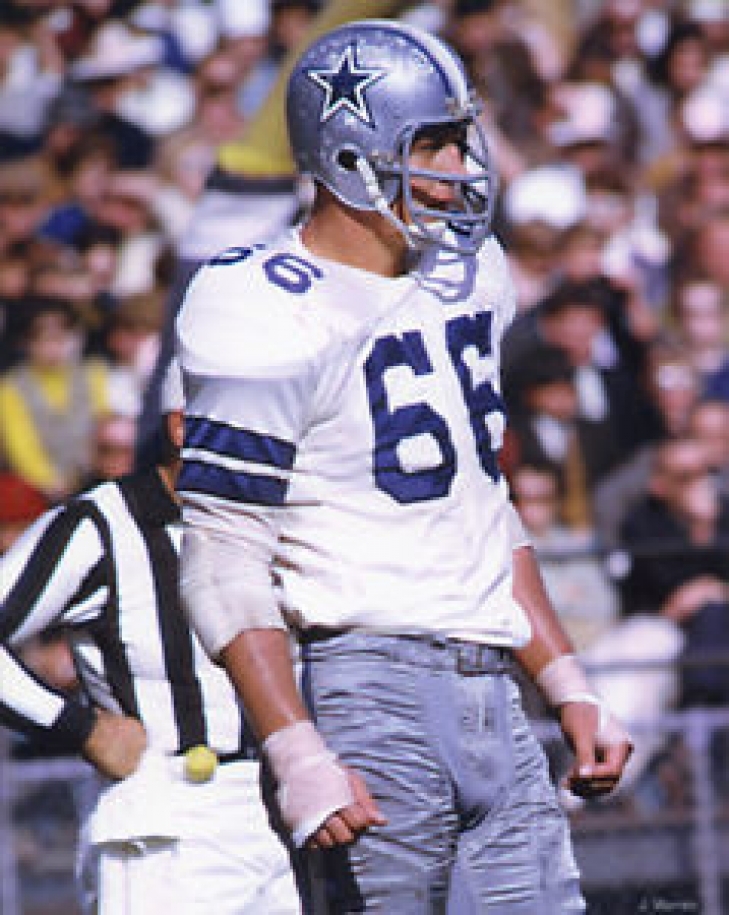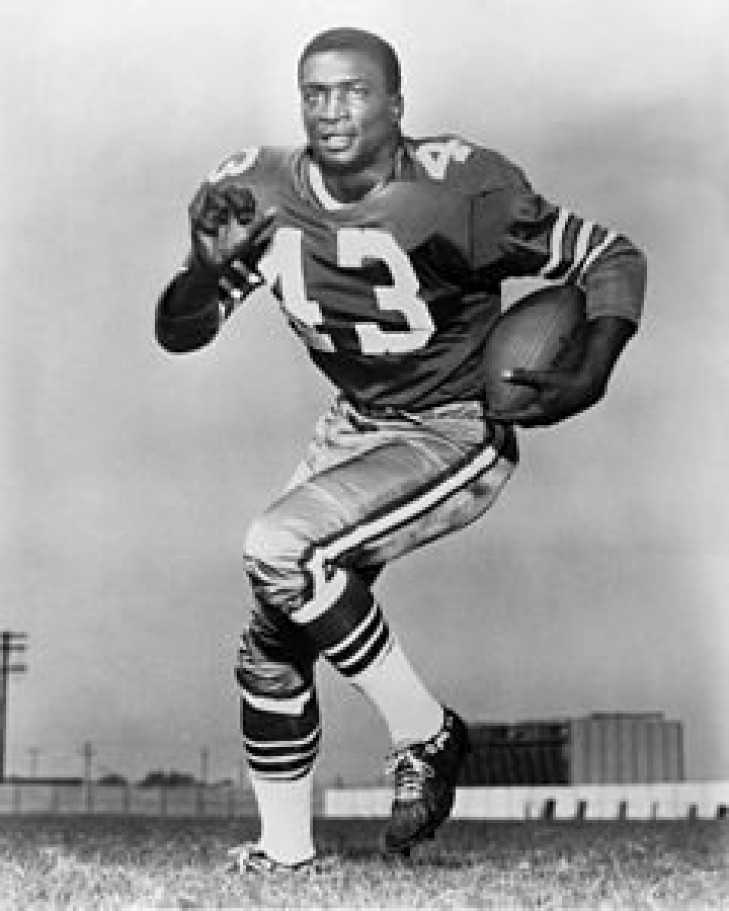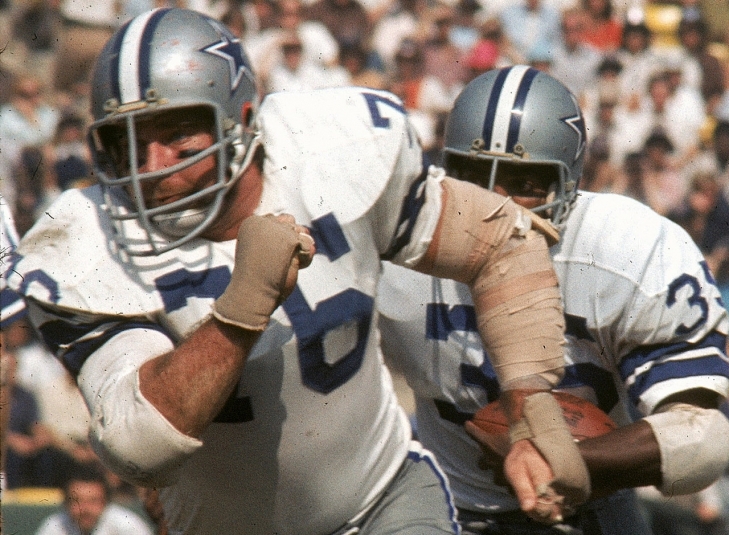15. Cliff Harris
In 1970, the National Football League’s teams all passed on drafting Cliff Harris, the Safety from Ouachita Baptist. The Cowboys invited him to training camp, and he was so impressive that not only did he make the team, but he won the starting Free Safety role.
13. Chuck Howley
Perhaps one of the biggest snubs of the Pro Football Hall of Fame is Chuck Howley, though the beginning of his pro career did not make anyone think of greatness.
9. Larry Allen
Sonoma State is no football factory, and it would take Larry Allen in 1994 to become the first player to be drafted from that institution.
8. Michael Irvin
While some might think of Michael Irvin as the third “Triplet” with Quarterback, Troy Aikman, and Running Back, Emmitt Smith, it was Irvin, the Wide Receiver who was in Dallas first.
12. DeMarcus Ware
DeMarcus Ware was an instant defensive star for the Dallas Cowboys after being drafted 11th overall in 2005 out of Troy.
6. Tony Dorsett
A stud Running Back at the University of Pittsburgh, Tony Dorsett had an immediate impact with the Dallas Cowboys, who drafted him second overall in the 1977 Draft. That year, Dorsett won the Offensive Rookie of the Year with 1,007 Rushing Yards, and four post-season Touchdowns on route to a Super Bowl win. Not a bad rookie year!
7. Troy Aikman
A Heisman Finalist at UCLA, Troy Aikman was the first overall pick in 1989, and the first of the Jimmy Johnson regime.
11. Jason Witten
Jason Witten is without question the greatest Tight End in the history of the Dallas Cowboys.
1. Emmitt Smith
When you look at "America's Team," you have a team that not only had a lot of eyeballs on it but one that would generate a plethora of Hall of Famers. Choosing the greatest Dallas Cowboy wasn't easy, but in the end, we decided on the player who was statistically speaking is the greatest Running Back of all-time.
5. Mel Renfro
Mel Renfro was a football and track star at the University of Oregon, Mel Renfro was a college Running Back, but Tom Landry and the Dallas Cowboys had other ideas for his speed.
4. Randy White
Randy White was a superstar at the University of Maryland, where in 1974 he won the Lombardi Trophy and was the ACC Player of the Year. The Cowboys took notice, and they would select him with the second overall pick.
3. Roger Staubach
While a case could have been made for Roger Staubach to be at #1, #3 for this team still means you are a Hall of Fame caliber player.
2. Bob Lilly
There was serious consideration for Bob Lilly to be named number #1, but #2 is a damned good rank for a storied franchise like the Dallas Cowboys.
#87 Overall, DeMarcus Lawrence, Dallas Cowboys, Defensive End, #18 Defensive Lineman
2023 Pre-Season Rank #111, 2022 Pre-Season Rank #132, 2021 Pre-Season Rank #131, 2020 Pre-Season Rank #133. Peak Period: 2017-19/2022-23
DeMarcus Lawrence has had two two-year Pro Bowl runs in his career with the Dallas Cowboys, and the versatile Defensive End stays under the national radar despite playing for America’s Team. Lawrence would have to elevate his play to make a Hall of Fame run, or in a lesser field, the Cowboys Ring of Honor.
#32 Overall, Dak Prescott, Dallas Cowboys, #6 Quarterback
2023 Pre-Season Rank #44, 2022 Pre-Season Rank #55, 2021 Pre-Season Rank #63, 2020 Pre-Season Rank #80. Peak Period: 2016-17/2021-23
There is no greater pressure cooker in the National Football League than being the Quarterback of the Dallas Cowboys, and while Dak Prescott has been maligned in some circles for not winning a Super Bowl, the stat line shows that he has been very good.
The 2016 AP Offensive Rookie of the Year was last year’s runner-up for the MVP. Last season, Prescott led the NF in Touchdown Passes (36), and if he can take the Cowboys to a Super Bowl, watch his HOF momentum skyrocket.
328. George Andrie
Playing his college ball at Marquette, George Andrie played his entire 11-year career with the Dallas Cowboys.
195. Don Perkins
While the story of the Dallas Cowboys never started for many fans until the early '70s, there was undoubtedly some star power in the 1960s. One such performer was Don Perkins, their Fullback from the University of New Mexico.
213. John Niland
201. Mark Stepnoski
The Dallas Cowboys had ideas for Mark Stepnoski when they drafted him in the 3rd Round from the University of Pittsburgh. Dallas converted him from Offensive Guard to Center, a position he had never played before; however, they did not rush him, easing him to the position learning from the incumbent, Tom Rafferty.
190. Nate Newton
Nate Newton was so big, that he was called the “Kitchen," in reference to that he was a more massive player than William "The Refrigerator" Perry. Newton went undrafted from Florida A&M but found a home in the USFL, where he played two years with the Tampa Bay Bandits and would be named to the All-USFL Team.


